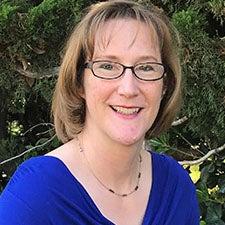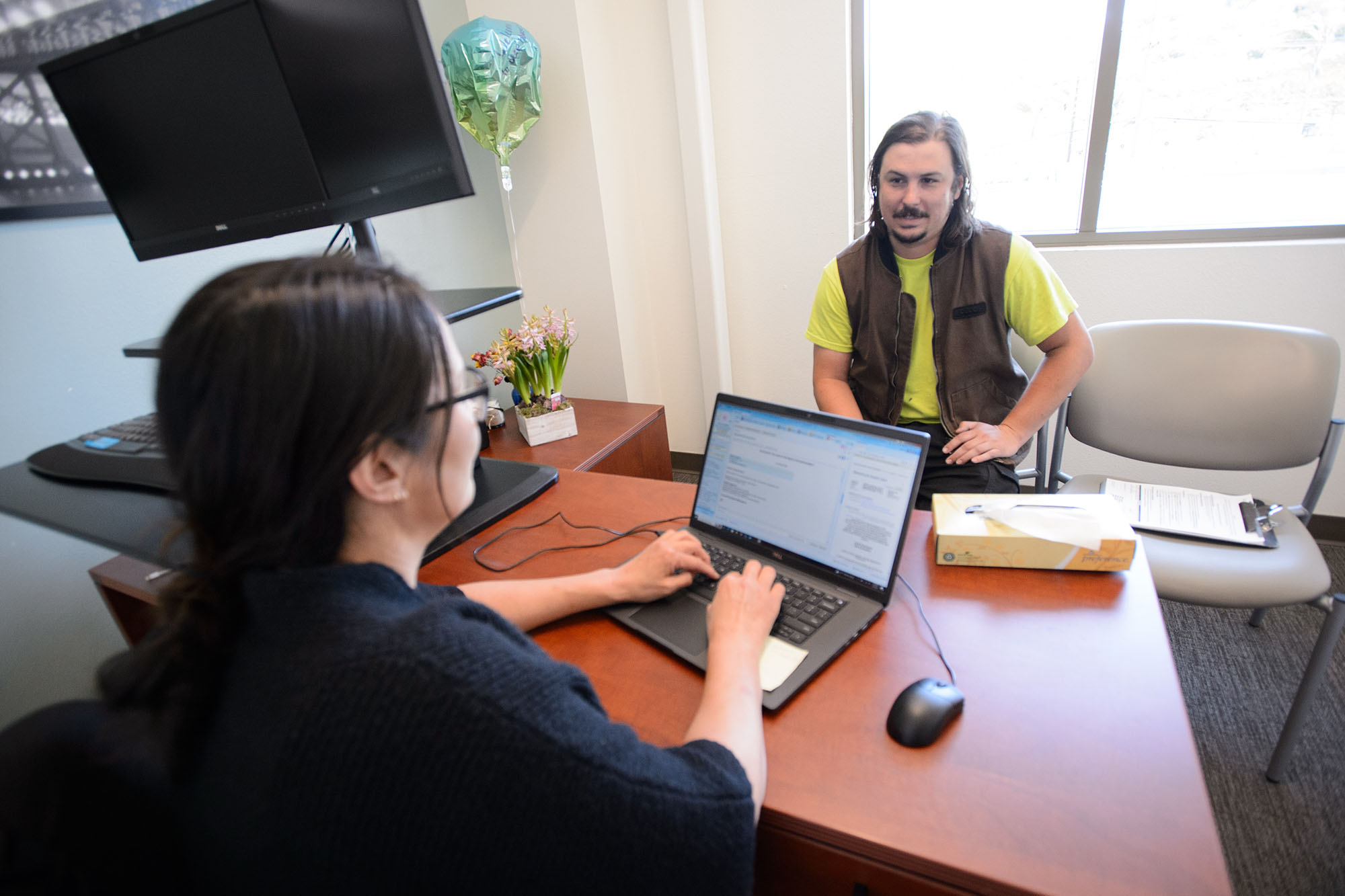|
Getting your Trinity Audio player ready…
|

At the height of the COVID-19 pandemic, leaders at Serene Health were struggling to hire enough therapists to meet the needs of a new contract with Contra Costa Health Plan. Amid the national shortage of licensed mental health providers, Serene Health started interviewing pre-licensed therapists to fill the positions, but the hiring process stalled when the organization confronted a problem: These therapists had completed their educations but needed 3,000 hours of supervised experience from a licensed provider to qualify for a state license. Serene Health’s overburdened workforce of therapists did not have the capacity to provide supervision for more than 20 new pre-licensed hires.
Leaders of the organization — which serves Medi-Cal patients throughout California — heard about an online platform called Motivo that connects pre-licensed clinicians with supervisors via video conferencing. Serene Health selected a half-dozen therapists from Motivo to provide weekly one-hour online supervision.
“It was a relief to access affordable, high-quality clinical supervisors so quickly,” said Jennifer Guerguis, LMFT, a licensed marriage and family therapist and chief clinical officer at Serene Health.
Hiring remote supervisors frees up on-site licensed clinicians to spend more time working with patients and reduces the time before supervisees earn their licenses, said Rachel McCrickard, LMFT, who founded Motivo in 2018. The organization analyzed national data from master’s- level graduates in mental health counseling and social work from 2019 through 2021 and found that 57% did not achieve licensure. One of the significant barriers they face is accessing qualified supervision, according to a Motivo survey of aspiring clinicians.
“The mental health industry is using the greenest providers to see the most vulnerable populations, and they need experienced supervisors who can support them,” said McCrickard.

She became acutely aware of the difficulty accessing supervisors after graduating with a master’s degree in clinical psychology in 2008 while living in rural northern Georgia. The closest supervisor was a two-hour drive to Atlanta. Although most states now allow virtual supervision, McCrickard realized that connecting to online supervisors was not a straightforward process. Motivo’s platform allows pre-licensed marriage and family therapists, social workers, professional counselors, and psychologists to select a supervisor in their state based on license type and area of expertise.
In most cases, larger organizations that employ pre-licensed providers — such as Federally Qualified Health Centers and community behavioral health clinics — work with Motivo to access supervisors, but sometimes individual pre-licensed therapists reach out to Motivo independently to find someone.
For California organizations, Motivo offers supervision from people who work and live in any state as long as they hold an active and current California license.
Smaller Supervision Groups
Reducing barriers to licensure is more important than ever as the state faces increasing rates of mental illness, particularly among children and families with incomes below the federal poverty level. Close to two-thirds of adults with a mental illness and two-thirds of adolescents with major depressive episodes did not get treatment in California in 2019, according to a recent study.
“We are excited about Motivo because the company will help our state increase the number of providers by smoothing the pathway from graduation to licensure,” said Melissa Buckley, director of the Innovation Fund at CHCF, which invested $1.3 million in the company earlier this year.
Mike Lopez, who earned a Master of Social Work (MSW), is interested in providing care to marginalized patients, and the guidance from his Motivo supervisor has been critical when he faced difficult cases. In 2022, he was hired as a pre-licensed associate at Telecare Recovery Access Center in Modesto, California, and was grouped with seven other associates in weekly supervision meetings.
In early 2023, Lopez learned that his employer was partnering with Motivo to provide additional supervision. He and a colleague were assigned to a supervisor in Indiana named John Smith, LMSW, who has more than 20 years of experience as a therapist. During the weekly video sessions, Lopez shares information about the symptoms and treatment challenges he is experiencing with various clients. Recently he worked with a persistently angry client who was calling him more than a dozen times a week about problems that increased the client’s risk of harming himself. Lopez would interrupt his work with other patients to respond to these urgent calls.
“Rather than de-escalating the client and coming up with a safety plan each time, Dr. Smith encouraged me to help the client focus on the things he could control,” said Lopez. “This helped me gain the confidence to challenge the patient’s perspective on the situations.”
In May, the California Mental Health Services Authority announced a new contract that will allow Motivo to provide remote clinical supervision in all of California’s 58 counties.
Lopez is one of more than 2,500 pre-licensed therapists in 41 states who have worked with Motivo supervisors. More than one-third of the 400 supervisors identify as Black or Latino/x. Research has shown that increasing diversity among mental health providers improves trust with patients, and the same principle applies to the relationship between the supervisor and supervisee, said McCrickard. “Supervisors from diverse backgrounds can often better understand the clinical challenges and life experiences of supervisees of color,” she said. Respondents to the Motivo survey also reported that they wanted greater access to supervisors who looked like them and who understood their background and experiences.
Motivo contracts with multiple safety-net providers in California, including Partners in Care Foundation, Pacific Clinics, and Neighborhood House. In May, the California Mental Health Services Authority (CalMHSA) announced its new contract with Motivo, which will allow the start-up to provide remote clinical supervision in all of California’s 58 counties. The partnership supports CalMHSA’s goal of exploring new ways to address the severe shortage of behavioral health workers. By increasing access to staff supervision, the organization hopes to grow the next generation of Medi-Cal providers who care for the state’s most vulnerable populations.
Support for Weekend Workers
Melissa Garcia, MFT, was eager to work with a supervisor when she accepted a weekend position at Telecare’s Olive House, a crisis residential treatment program in the Los Angeles suburb of Sylmar. Garcia needed help with clients who were dealing with such issues as homelessness, substance use disorder, schizophrenia, and bipolar disorder. Her Motivo supervisor, Jennifer Calderon, LMFT, shared valuable information about pharmacies, housing nonprofits, and other local organizations that could help Garcia’s clients.
When one of Garcia’s clients, a woman who was undocumented and experiencing homelessness, had a psychotic episode, Calderon pointed her to organizations focused on supporting undocumented migrants. One was the Central American Refugee Center, which could help the woman complete applications for housing.
When Garcia shared that she wanted to build more rapport with clients, Calderon suggested that she ask the team to consider recording their Friday debriefing sessions. Now Garcia watches the recordings before she starts her shift; this small change has helped her feel more connected to clients.
“This is challenging work and burnout is frequent, and Jennifer is teaching me how to advocate for my needs in a professional manner,” said Garcia. “She helps me feel more equipped to manage my cases and enjoy the work I am doing.”
Remote supervisors like Calderon not only help pre-licensure therapists enjoy their work more, they are helping to address one of California’s biggest health care challenges – easing a severe shortage of mental health care providers.
Authors & Contributors

Heather Stringer
Heather Stringer is a freelance health and science journalist based in San Jose. She studied civil engineering at Stanford University and started her journalism career at a daily newspaper in Fremont. Heather began covering health care as a staff writer and editor at a nursing magazine and launched her freelancing career in 2003. Her work has been published in Scientific American, Monitor on Psychology, Cure, Proto, and Nurse.com.

Rob Waterman
Rob Waterman is a professional photographer and documentarian working in California’s Central Valley. A native New Englander, Rob covered the 2020 New Hampshire presidential primary campaign.



